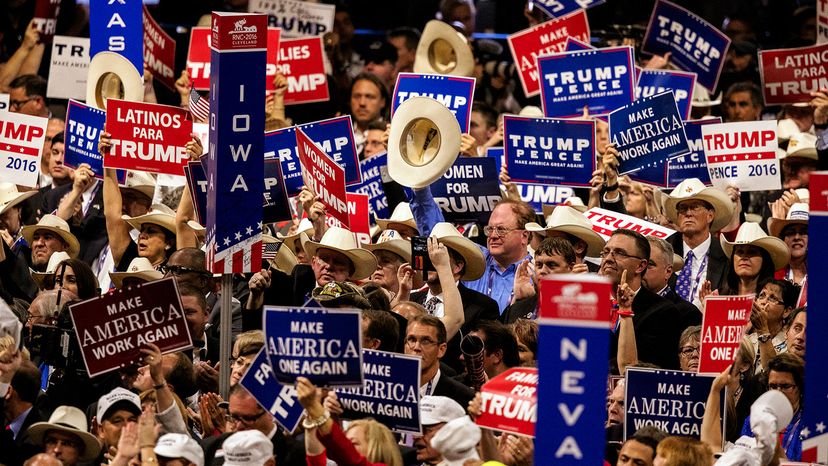Nuts and Bolts of Political Conventions

The national political conventions are made up of delegates from each state. Those delegates are selected in different ways, depending on the party and the state. The key here is that the delegates are not only party members but also supporters of a particular candidate.
The Democrats use a proportional system, in which the percentage of party members in favor of a candidate in the primary or caucus is reflected in the percentage of delegates representing that candidate who will be sent to the convention. For example, if two candidates split the primary vote, then each gets half of the delegate positions for that state.
Advertisement
Republicans favor a winner-take-all system, although they do allow states the option of using a proportional system. Under a winner-take-all system, the candidate with the majority of votes in the primary or caucus gets all of the state's delegate seats.
Deciding how many delegates each state gets is a very complicated process. Essentially, the number is based on the state's population, as well as how much support that state has given to party candidates in recent elections.
Now we know who gets to go, but how do they decide where they're going? In the age of modern travel and mass communications, the national conventions no longer need to be held in centrally located cities. The main factors today are:
- Infrastructure - Does the city have the hotel and convention space, as well as the public transportation, needed to host thousands of people?
- Security - Can the site be adequately protected from terrorists or protesters?
- Funding - Can the city provide the millions of dollars in additional funding that the parties typically receive from the host city?
- Preference - According to Congressional Quarterly, "for the party that controls the White House, often the overriding factor in site selection is the president's personal preference."
What do today's delegates do at the convention? They may discuss party issues, listen to speeches, and participate in party "pep rallies." But for the most part, nothing political actually happens at political conventions in the 21st century. The convention concludes with a carefully planned speech by the party's nominee for president.